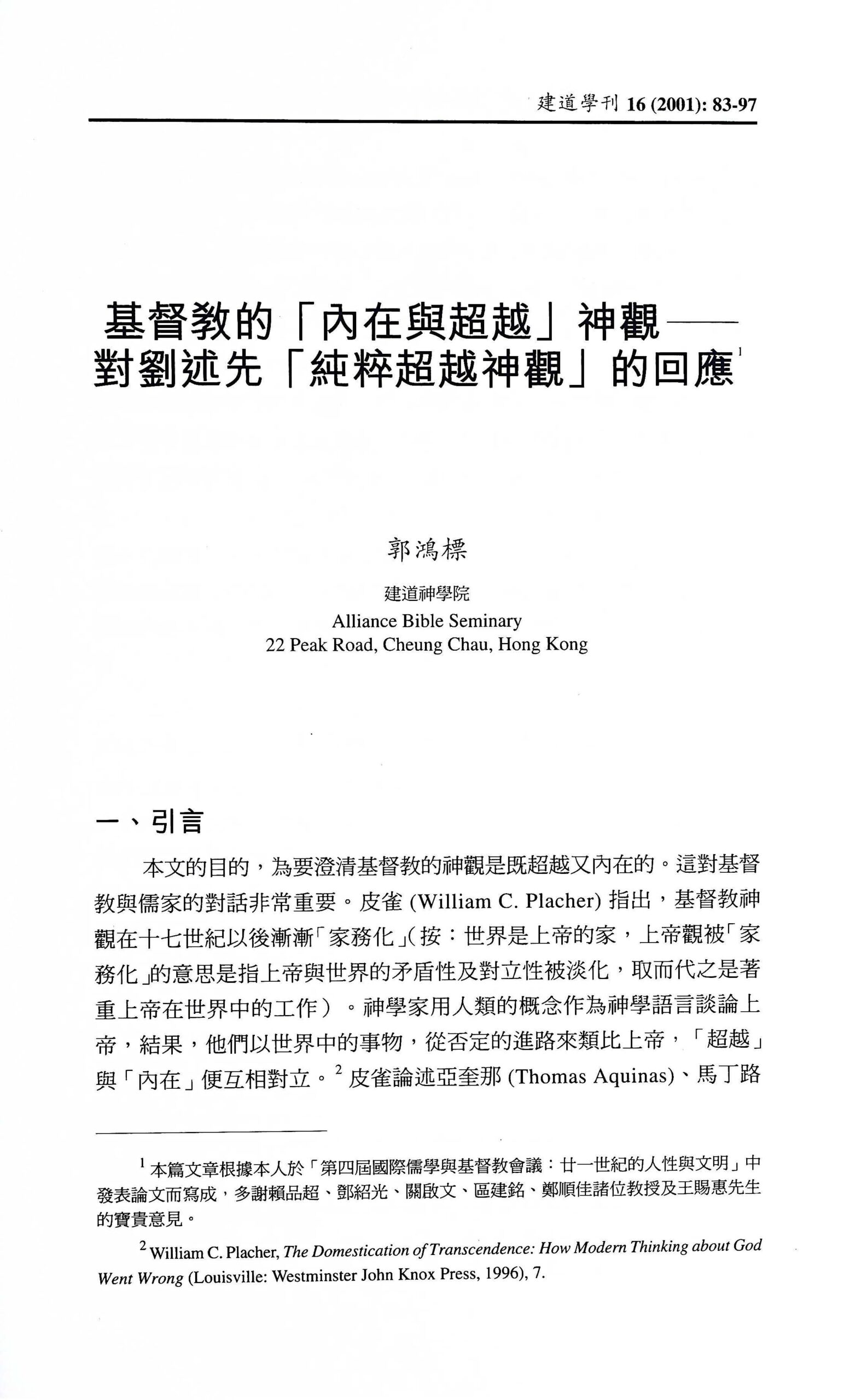基督教的「內在與超越」神觀──對劉述先「純粹超越神觀」的回應/郭鴻標
撮要
本文主要目的是回應新儒家代表劉述先教授的見解,他認為基督教神觀是純粹外在超越的觀點。這種見解主要循哲學的進路,將上帝界定為超越被創造的宇宙的創造主。這種上帝外在而超越宇宙的觀點引申於神人關係上,將基督教神觀局限於無法與人有絲毫溝通的結論。筆者循著三一神觀的進路,提出上帝既「超越而內在」。上帝的超越性表現在父、子、聖靈三個位格內在的合一上,而上帝的內在性則表示聖子和聖靈在世界中工作。因此,筆者建議耶儒對話的焦點,應是在肯定基督教與儒家同樣強調超越及內在以後,探討雙方如何詮釋「內在超越」 的理解。
ABSTRACT
This article aims to respond to the view of Prof. Liu shu-hsien, a scholar of Neo- Confucianism, that the Christian understanding of God is purely transcendent. This kind of understanding mainly follows the philosophical approach to define God as the Creator who transcends the created world. Based on such a presupposition, God’s pure transcendence over the world, it would be inevitable to limit the understanding of the Christian God to the One being unable to have any communication with human-being.
The author follows the Trinitatrian understanding of God, and points out that God is both “transcendent and immanent.” The transcendence of God is expressed in the internal unity of the persons of the Father, the Son, and the Holy Spirit. The immanence of God is shown through the work of the Son and of the Holy Spirit in the world.
In the conclusion, the author proposes the focus of Christian-Confucian dialogue should be readjusted. We can proceed to explore how the Christianity and Neo-confucianism interpret the idea of “immanent transcendence” after we have affirmed that both of them emphasize the concept of “immanent transcendence.”
原載於《建道學刊》16期(2001年7月),頁83-97。
作者簡介
郭鴻標
神學系教授
副院長 (行政)
最新文章
【畢業生分享】重新導航──導引一生的神 / 王雅君
2026 年 1 月 1 日
【畢業生分享】屬靈導引的生命體會——與上主同工的旅程 / 黃芳
2026 年 1 月 1 日
【校本部學生分享】重拾與主同行的節奏——依納爵神操旅程反思 / 鄭家恩
2026 年 1 月 1 日
編輯精選
[電子書]困境與抉擇:「建道研究中心30週年誌慶」跨學科研討會論文集/廖炳堂、倪步曉主編
2025 年 1 月 2 日
從梧州到長洲:建道神學院125年的挑戰與恩典 / 陳智衡
2023 年 10 月 1 日
微小教會的見證/高銘謙
2023 年 6 月 1 日








